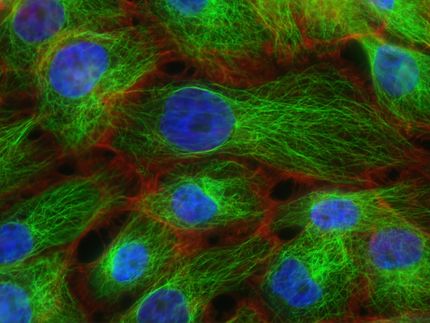Cancer therapy: How our cells are becoming resistant to medication
New study gives hope for more effective therapies
Advertisement
Human cells are constantly changing shape. Biologists know that these morphological changes reflect changes in a cell’s function but our ability to understand the meaning behind a cell’s shape has, to date, been limited. In their new study Rune Linding from Humboldt-Universität zu Berlin (HU) and his colleagues have utilized artificial intelligence to learn, and interpret, changes in the morphology of cancer cells in order to understand how these cells are becoming resistant to cancer medication.

Symbolic image
Photo by Sharon McCutcheon on Unsplash
The researchers used an artificial intelligence (algorithm) to analyse the morphology of about 850 million cancer cells, over a period of three months, far greater a number than a biologist would be capable of analysing. This gave the machine a unique insight into very subtle changes, invisible to the human eye, in morphology that cancer cells undergo when becoming resistant to therapies.
Not only was the algorithm able to accurately predict which cancer cells were resistant to drug just by 'looking' at them but it was also able to suggest which proteins in the cells were likely driving this drug resistance.
The researchers hope that this knowledge can be used to develop better anti-cancer therapies, or therapies that can potentially reverse drug resistance in the future.
"It is becoming increasingly clear that the analysis of cell morphology using deep learning algorithms can be used to identify and classify tumours in clinical tissue scans. However, we are just scratching the surface regarding the clinical implications; moving forward we believe that morphology can supplement, and perhaps even replace, genetic analyses of tumours in the discovery of better cancer therapies," says Rune Linding, Lead Researcher of the REWIRE Project at the HU.
























































